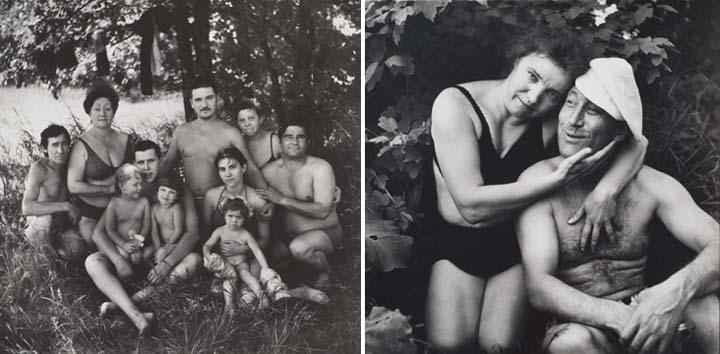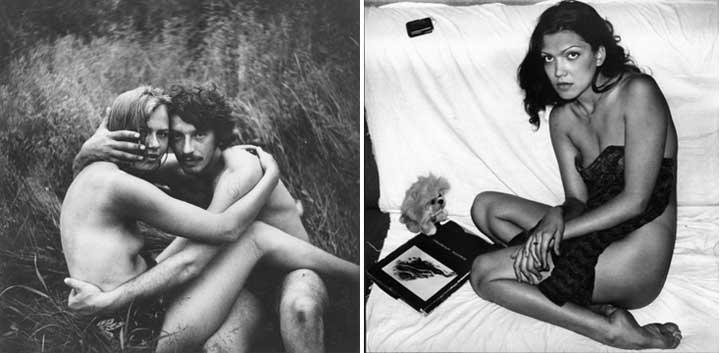Nikolay Bakharev in New York
Siberian-born Nikolay Bakharev’s photographs of working class Russians at the beach, which were first seen in the U.S. in the 2012 exhibition Ostoglia, at the New Museum, was shortlisted for the 2015 Deutsche Brse prize. His work is currently on view at The Photographers Gallery, London, with another show opening next week at Julie Saul Gallery, New York.
Bakharev began photographing during the Soviet era when it was illegal to photograph or exhibit nudes. His ambiguous images of Russian bathers on public beaches, and individuals and groups photographed in private homes, play on the tension between acceptable and unacceptable imagery.
In a 2006 interview with Luca Desienna for the Russian photo magazine Gomma, Bakharev spoke about the formal qualities inherent in photography that interest him.
LD: What does photography mean to you?
NB: Photography is one of the channels through which the present penetrates into the future, just as the art of the past got inside us. For me photography is a means to express systems of opinions and values, the author’s ideology.
LD: Do you believe that contemporary photography emphasizes the form rather than the content?
NB: In the 1980’s there was a discussion among creative photographers about the documentary as a sphere of global mystification. It is precisely these photographers, I mean G. Kolosov, I. Mukhin, V. Shchekoldin, V. Syomin, S. Chilikov, S. Osmachkin, M. Ladeishchikov, A. Pashis, V. Vorobyov, A. Trofimov, V. Sokolayev, A. Bokin, V. Shabankov, who helped me to consolidate my stand against the distortion of reality.
“Social” was a fashionable term then. Various trends in photography appeared for the first time after a long period when nothing else was allowed in photographic creation except “Stop, this moment, you are beautiful,” and the Cartier-Bresson approach to reporting. Many people played the theatre game, of photographic life. In their interpretation reality of that sort looked empty, invented, pure entertainment. Photography of this kind would actually operate with the form ignoring the content. I wanted to arrange my work to counterbalance the creation of these authors.
LD: Do you regard yourself as a social artist?
NB: Society sets up limits for ourselves through the morals which are, to a certain extent, violated by the society itself. In my work I destroy notions concerning the morals of an ordinary person, exposing the environment of his/her life and I am well aware that the reality I depict would never win recognition from that very ordinary person. Certain courage is necessary for it, since the social genre is a drama deprived of any entertainment aspects, fully appealing to the civil, social emotions of the viewer, arousing empathy.
They often accuse me of the fact that the material I have collected represents the society as something spiritually deprived and impoverished and the human being looks miserable and ugly in it. Yet a certain notion of our life is created to the extent of the recognition of reality by the viewer, making me thus, a social artist.




